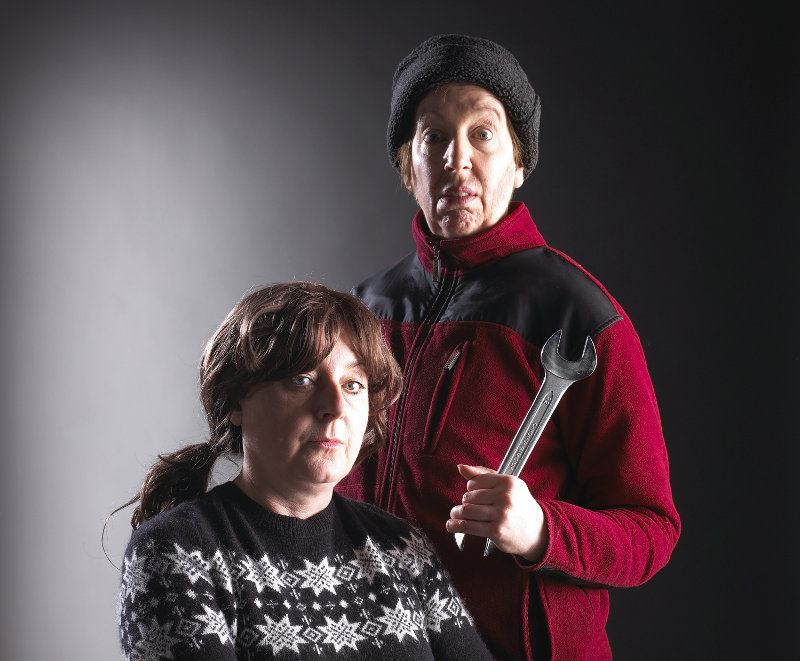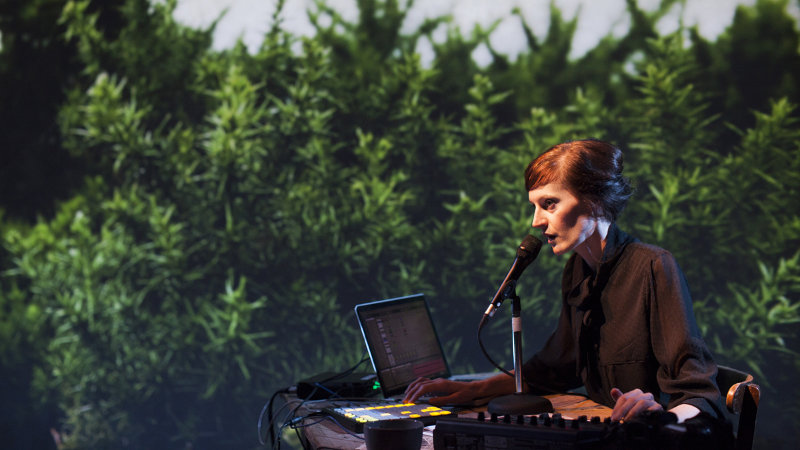Winter is cold in Sweden. You need to wear a warm sweater. You need to learn how to walk with sticks. You need to know how to construct flat-pack scenery. Thus with minimal fuss the stage is set for an anarchic romp through the Swedish TV crime genre, involving four-piece pop band Fabba, an alarming amount of roadkill, community knitting, and a streetwise moose.
Involving the audience from the start (in order to provide ‘meaningful engagement in the arts’), playing with dramatic devices, and sneaking in some meta-theatre, Maggie Fox and Sue Ryding are delightfully batty and assured performers, whether in character or as themselves. And what great characters they have created. Sandra Larsson, the sweater-wearing detective who doesn’t do small-talk; Erik, the lugubrious cop with his wavering accent; Freya, the brunette out of Fabba – or is she?; and, my favourite, Sven from Fabba, slightly pervy with his plastic playmate and hot tub. It is less bewildering than it sounds – the pair excel in doubling up, and subverting form: ‘I’m going behind the set to change because that’s professional,’ announces Maggie with a flounce.
LipService obviously have a very loyal audience. Much of the ingenious set has been provided by knitting groups on the tour. We happily help to decorate the tree to recreate spring, make our ‘sporklers’ for a firework effect, and do all the sounds effects requested. Filmed excerpts by Vita Fox both support and supplement the story. There is original music and songs (Oliver Vibrans and Malcolm Raeburn).
If it seemed a little small on the Theatre Royal stage, Inspector Norse was a refreshing change to the usual theatre on offer here. There are echoes of Spymonkey in the absurdity of it, and of Forkbeard in the inventiveness. From its lovely ‘humanette’ effect, to crispbreads as foley (they make great crunching on snow footsteps) and the unnecessary plot-point of a knitted spanner, LipService are masters of their material and performance. Skol!





